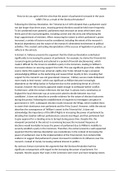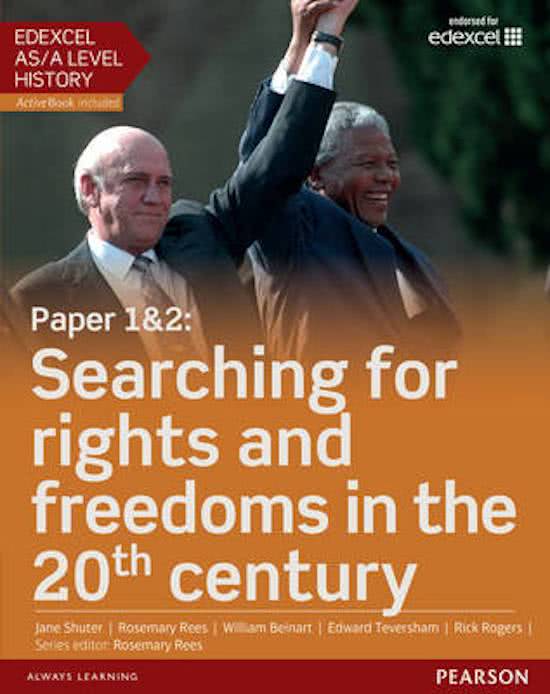Natalie
'How far do you agree with the view that the power of parliament increased in the years
1688-1701 as a result of the Glorious Revolution?'
Following the Glorious Revolution, the Triennial Act of 1694 dictated that a parliament could
not last longer than three years, meaning general elections would be held more frequently.
To be considered more powerful, parliament must encroach on areas which were once
firmly part of the royal prerogative, including control over the army and influencing the
king's appointment of ministers. When measuring the extent to which parliament's power
increased, a variety of factors must be considered, including the extent of the monarch's
financial dependence and the nature of the monarch's diminished involvement in political
activities. This created contrasting interpretations of the success of legislation in practice, as
reflects in the extracts.
In Extract A, Vallance presents the argument that the Glorious Revolution contributed
significantly to increasing the powers of parliament. For example, he claims the Triennial Act
'ensured regular parliaments and ushered in a period of feverish electioneering', which
made it difficult for the Crown to establish a party in the Commons, leading to William's
increased reliance on securing support from MPs. This was significant given that, while the
source claims this support was universal, eighty-nine Tories refused to sign a proposal
acknowledging William as the lawful king and reassert their loyalty to him, revealing that
support for the monarch was not guaranteed. However, 'military success made Parliament
more ready to lend money', which was significant as William became increasingly
dependent on the Whig faction in Parliament due to the underlying threat of a French
invasion, however the economy appeared stable enough to withstand further conflict.
Furthermore, while the extract references the fact that 'in almost every constituency in
England the local electorate was at some point asked to decide between two rival
candidates', it does not describe or provide evidence for the nature of electoral outcomes
during this period. Following the establishment of enquiries to investigate corruption in
government in 1695, subsequent election results favoured the Whigs, which enabled them
to assert their dominance over parliament and the Privy Council. However, while the extract
describes the consequences of 'William's assent to the Triennial Act', it does not
acknowledge the importance of the Bill of Rights in increasing the power of parliament by
dictating that taxation without parliamentary consent was illegal, and that parliament had
to give approval for a standing army to be kept during peace time. Despite this, the
viewpoint presented in the extract is convincing because the increased frequency of
elections would inevitably increase the power of parliament due to William's inability to
securely establish a party in the Commons. Therefore, the extract presents a well-supported
argument that the Glorious Revolution was revolutionary in the context of increasing the
power of parliament, due to the implementation of the Triennial Act, but contains little
evidence to suggest that parliament's power increased in relation to its influence over the
monarch, instead of merely increasing national interest in politics.
By contrast, Extract 2 presents the argument that the Glorious Revolution had less
significant consequences with regard to the increasing the power of parliament. For
example, Horwitz argues that 'seats in the Commons were more and more stepping-stones





